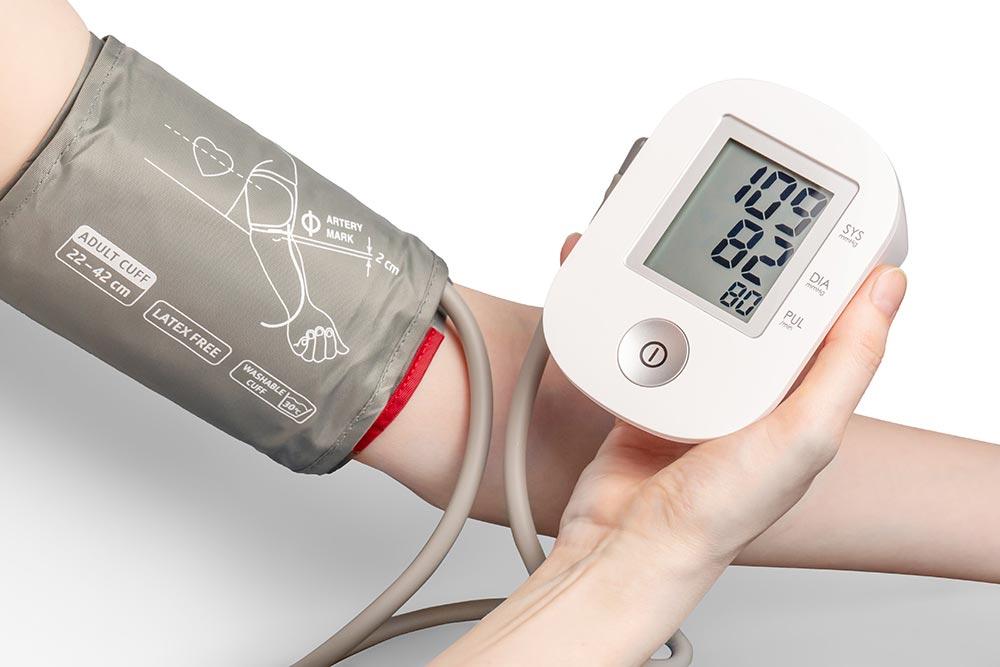Hypertension is a condition in which one’s blood pressure is higher than average, pumping blood from vein to vein at alarming rates. When you think of high blood pressure, you think of heart attacks and other cardiovascular complications. Little do you know that that’s merely the tip of the iceberg when it comes to what hypertension does to your body.
Hypertension can cause compilations from head to toe and, when kept unchecked, can lead to a life filled with discomfort. Luckily, hypertension clinical trials at Power have found ways to recognize high blood pressure on your own, which is precisely why awareness should be necessary when it comes to knowing what the effects of hypertension might be because, for all you know, that chest pain that you have been feeling lately might indicate something worse.
6 Effects of Hypertension on the Body
Arteries
The flow of nutrient-filled blood throughout the body happens within arteries, and it does its job well due to the thin lining that makes way for free blood flow.
For a person experiencing hypertension, it will be a growing concern for your arteries as that pressure will chip down on your arteries the longer it is kept untreated. Hypertension can cause problems such as
- Narrowed arteries are caused by the fats in our diet, which would usually collect within the arteries, causing high blood pressure, which then damages the inner lining of arteries.
- Aneurysms are a bulge located within the arteries when that artery’s wall has been weakened. Blood pressure is often the suspect in this case, and eventually, as the pressure gets worse and worse, that aneurysm can cause a rupture which can lead to fatal internal bleeding.
Heart
Knowing that the heart has a lot to do with the body’s blood circulation is a piece of knowledge from elementary school. It is no surprise that high blood pressure can cause a lot of problems for the heart, and some of these include:
- Coronary artery disease is a condition wherein arteries that have been continually damaged can no longer sufficiently supply blood to the heart, which will lead to irregularities in heart rhythm.
- An enlarged left heart happens when the left ventricle overworks, causing it to grow bigger in size. This is extremely dangerous as a larger left ventricle increases the chance of heart attacks and heart failure.
Eyes
A less foreseeable consequence, which is ironic as it concerns the human eye. The blood vessels within the eye and eye socket are more delicate, so high blood pressure is more likely to cause problems in that area. These problems include:
- Retinopathy is a condition wherein the blood vessels located in the back of the eye are damaged, causing bleeding, blurry vision, and blindness.
- Choroidopathy is a condition wherein too much fluid buildup under the retina results in distorted and impaired vision.
- Optic neuropathy happens when blood flow is restricted in the optic nerve, often leading to vision loss.
Brain
The brain is heavily reliant on proper blood flow in order for it to work. Even the slightest change in blood pressure or nutrients can cause irregularities and cause problems such as:
- A stroke happens when the brain is deprived of a healthy amount of nutrients and oxygen. Since blood pressure regulates that amount, this is a major problem.
- TIA or transient ischemic attack, sometimes referred to as a ministroke, is a precursor to a more serious case of stroke. It is often signified by a brief disruption of blood flow and may even be detected through the presence of blood clots.
- Cognitive impairment is very likely when there are complications in blood pressure, as it also has to do with the body’s overall functionality. Over time, age will wear down on our body, and blood pressure will be volatile, causing problems in the nervous system leading to memory and comprehension problems.
- Dementia happens when cognitive impairment worsens, as normal blood flow is needed to grasp information and use memory properly.
Reproductive system
Blood flow is a major factor in the reproductive system, and complications can lead to issues for both men and women.
As arousal often concerns proper blood flow, especially when the male needs their penis erect, high blood pressure can prevent this through erectile dysfunction. Female arousal is also affected by high blood pressure.
Kidneys
The kidney’s main function is to filter the blood, cleansing toxins from it and turning it into urine. Naturally, damaged and weakened blood vessels will affect this process.
Kidney failure will occur when either the blood vessels connected to the kidney or blood vessels within the kidney are damaged, making the kidney unable to filter blood. This will lead to that individual being unable to remove toxins from the blood, and dialysis or a transplant will need to be set in place.
If you have poor lifestyle choices, concerning levels of blood pressure will not be a surprise the next time you have a checkup with your doctor. However, you should start worrying about these choices now because if you do not, you will feel all these symptoms sooner than you expect.

